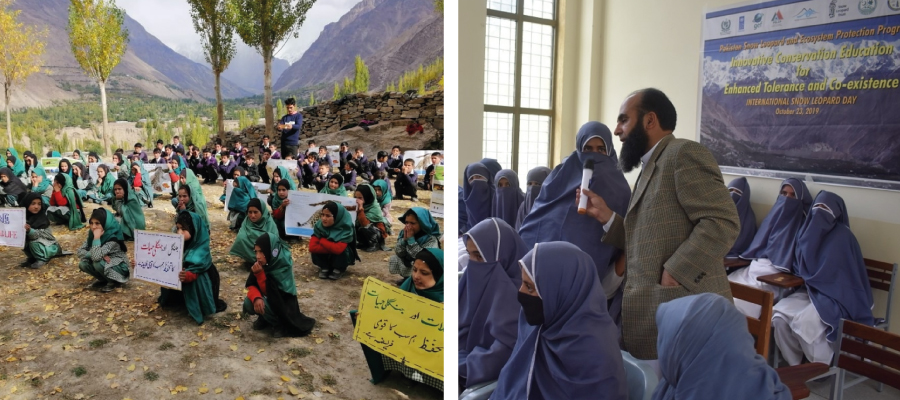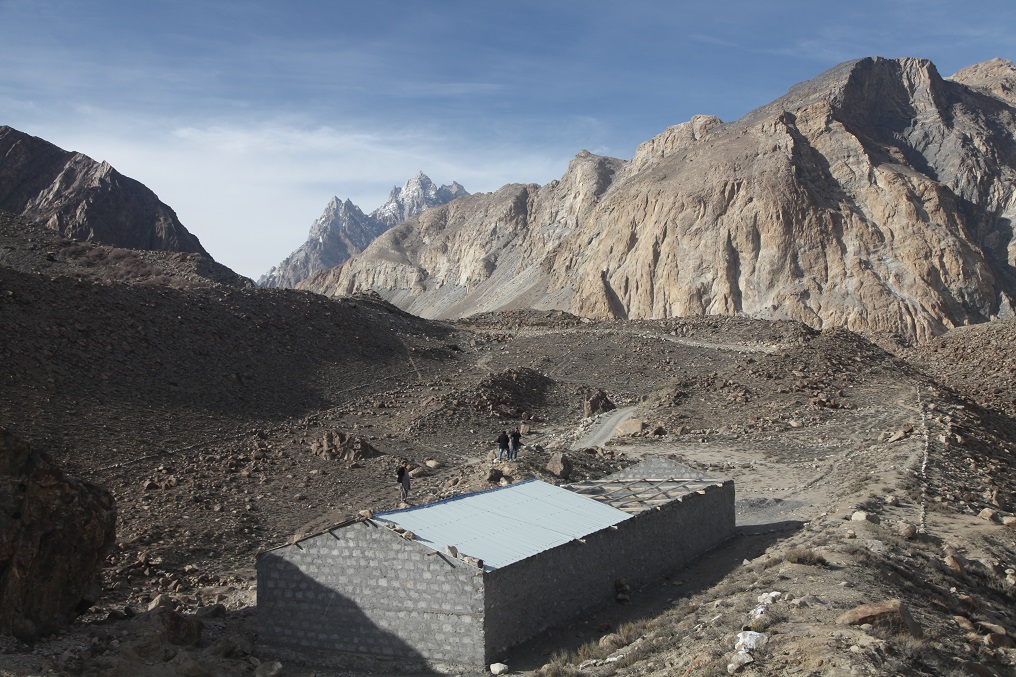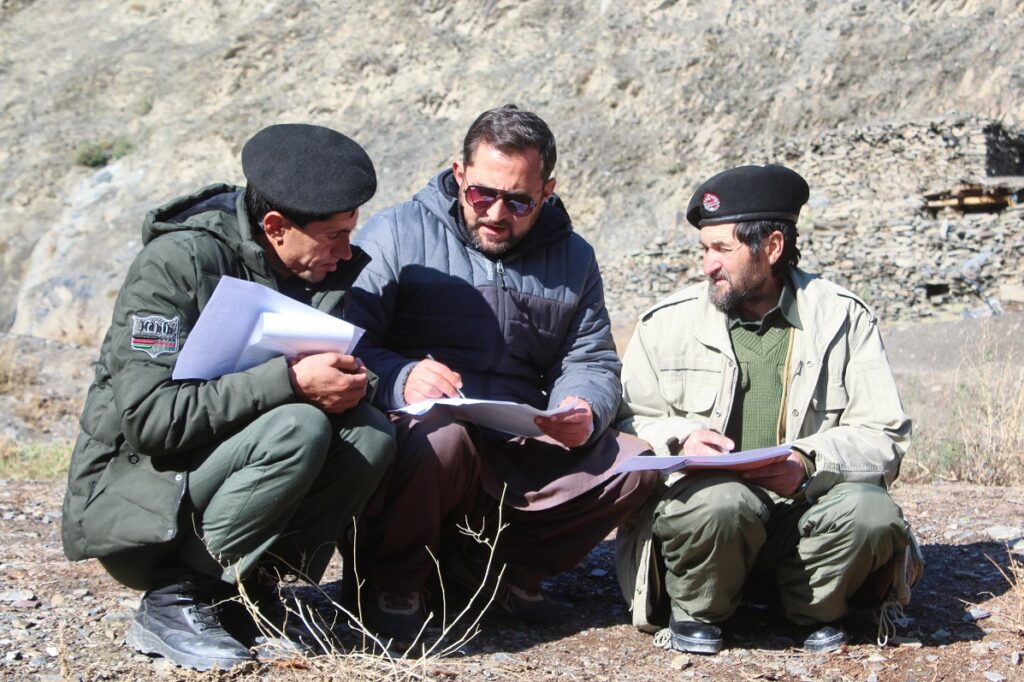Impact of Climate Change on Snow Leopard and its Habitat highlighted at Snow Leopard Day events
The impact of climate change, unmanaged tourism and human development has turned snow leopard and its ecosystem into fragile state. The survival of majority of wild animals is under threat. Being a large carnivore, the snow leopard is among the most threatened species and their survival has becoming difficult.
The International Snow Leopard Day is celebrated on October 23rd every year in all the 12 snow leopard range countries. As part of awareness and educational initiatives, SLF actively celebrate and participate in international days relevant to environment, wildlife, biodiversity and tourism. Following the practice, this year SLF celebrated the International Snow Leopard Day on October 23, 2019 in its program sites in Gilgit Baltistan, Chitral KPK and Neelum AJ&K. The day was celebrated under the theme “Innovative Conservation Education for Enhanced Tolerance and Co-existence”.
SLF has always given importance to youth in its conservation efforts. To create awareness and provide conservation education to students at grass root level, SLF has established Snow Leopard Clubs (nature clubs) in local community schools in snow leopard habitat.
In Gilgit Baltistan the SLF/ PSLEP program office celebrated Snow Leopard Day in four local schools 1. DJ High School Teru, Phander, 2. Shah Wali Academy Ghulmat, Nagar, 3. Jamshed Public School Astak, 4. DJ Middle School Ghulkin, Gojal Hunza. The program office in Chitral KPK celebrated the Day at University of Chitral in collaboration with Department of Sociology and Zoology.
The AJ&K program office celebrated the Day at Government Girls Intermediate College Kel – AJ&K. More than 400 students from all three regions participated in the regional events. The activities included nature walk, quiz shows, speeches by the students. The Snow Leopard Club coordinators shared with students the definition of climate change, its impact on the snow leopard and its habitat as well as impacting the local communities.
The nature clubs are established by SLF to create awareness in students through various educational activities all around the years. It results in capacity building of students and promotes the necessity of wildlife and environmental conservation. These students play an influential role within the community to bring change in perception of villagers and family members. The SLF teams highlighted the importance to understand and act accordingly through innovative conservation education, this will help in enhance tolerance towards snow leopards.
It is important to understand that why snow leopard presence is important to keep balance in the ecosystem. The climate change is effecting the high altitude ecosystems inhabiting by snow leopards. The typical habitat range of snow leopards is between where the tree line stops and the snow line begins on the mountains. As climate change causes temperatures to rise, snow lines are receding, which means that snow leopards must move further up the mountain slopes as well.
As snow leopards get to higher elevations, the vegetation becomes more scarce, which means that the herbivores that they prey on are in limited supply as well, and the leopards are having trouble finding enough food. Snow leopard is an indicator species and the conservation of snow leopard is essential in maintaining resilient mountain ecosystems. For instance, conservation of snow leopard requires conservation of its wild prey base and the latter can be achieved by proper management of high altitude habitats.



